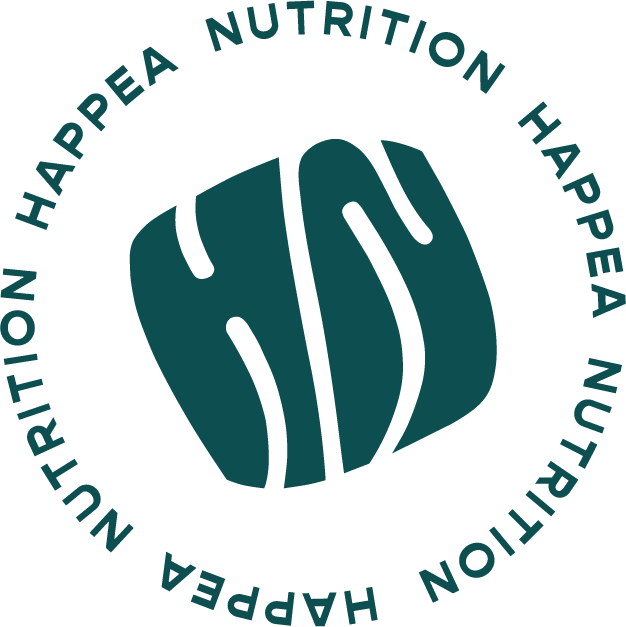Five wellness trends to leave in 2022
As the new year approaches, I am preparing for all the new wellness trends that may pop up and the fancy new names marketers find for the same diets. I'm not expecting any of the predatory marketing around food, health, and body shape to go away. But some trends are more annoying (and harmful) than others. Here are the top five 2022 wellness trends that I am sick and tired of and why you should leave them behind too:
Unnecessary gluten avoidance
Let's stop beating around the bush. Avoiding foods for no reason is a sign of disordered eating. Gluten in itself is simply a protein that 99% of the population (give or take) can digest with no issues. It does not cause any adverse reactions in those who do not have celiac disease. If you do have celiac disease then you should absolutely avoid gluten because celiac disease is an autoimmune response. It could cause tissue damage in the small intestine, inability to absorb nutrients, and unintended weight loss. The diagnosis of celiac disease should however be done by a qualified provider, not a wellness influencer. Another valid reason is a wheat allergy, which is different from celiac disease in that it is an allergic reaction to wheat specifically.
A third condition that has become popular in recent years is non-celiac gluten sensitivity (NCGS). While an actual diagnosis of this condition is hard to make, as there are no tests for it, a qualified provider (such as a gastroenterologist) can help you if you suspect you are sensitive to gluten. Unfortunately, a lot of people who claim NCGS stop feeling their "symptoms" when a double-blind challenge to gluten is done. This means they only feel symptoms when they knowingly eat gluten, which is a classic example of a nocebo effect. Nocebo is when a harmless substance is perceived to cause harm due to negative expectations. So while it is possible to have NCGS, I recommend working with a qualified provider to make this diagnosis and exclude other possible causes. Gastrointestinal symptoms could be a sign of an actual problem that will go untreated if you choose self-treatment with gluten avoidance instead of seeing a provider.
The most harmful part of the gluten-free trend is that people so deeply believe in the gluten-free lifestyle that they put their children of gluten-free diets. Going gluten free without proper guidance and with no medical need increases the risk of inappropriate fiber intake, mineral and vitamin deficiencies and could be a significant financial burden, as most gluten free products are more expensive.
Blood glucose monitoring
Continuous glucose monitoring can be extremely helpful, if not life-saving, for individuals with diabetes. This is especially true for type-1 dietetics, who do not produce any insulin. However, if you do not have diabetes there is absolutely no need to monitor your blood sugar. Monitoring how your blood sugar goes up and down might be fun and if you can afford a continuous glucose monitor (CGM), maybe you want to observe just for fun... fine! But don't walk around telling healthy people that "spikes" in blood sugar are dangerous.
There isn't much research on measuring blood glucose in healthy individuals because it's a complete waste of time. I spent quite a bit of time trying to find studies on the benefits or risks of CGM in healthy adults and found nothing. The best study I could find simply concluded that the data "will be useful as a benchmark for future research studies." so they found nothing.
Observing blood glucose curves is quite literally watching your body working properly. I wrote about this in a previous article. But let's recap what happens to blood glucose when you eat. After we eat a meal, glucose in the blood raises, which stimulates the pancreas to release insulin. Insulin allows glucose to be transported into cells, where it is used as needed. Measuring your blood glucose going up after a meal and claiming it could be concerning is as idiotic as measuring your heart rate during a run and saying you had a heart attack because it was high.
Some people claim that high insulin levels lead to all sorts of problems, which can be true in some cases. However, insulin itself is simply a hormone responsible for delivering glucose to cells. It does not cause weight gain independently. Elevated insulin is desirable after a meal high in glucose. Even the theory of low glycemic index diets for weight control has minimal scientific evidence for weight loss and obesity prevention, compared to other diets.
This is another sham that promotes carbophobia (a fear of eating carbohydrates) and disordered eating habits. Ironically, some of the foods that people may be scared of eating as a result of wearing a CGM, such as whole grains, could essentially help prevent type 2 diabetes. A piece of advice: enjoy your body and appreciate how well it works instead of overthinking basic functions.
Hating on seed oils
If you want to see me angry, tell me seed oils are inflammatory. A lot of people continue to push the “omega 6 fatty acids are inflammatory” hypothesis. However, this is an argument based on mechanisms and some research done in animals. Luckily our bodies are much more complex than those of lab rats.
The compound that is related to inflammation (arachidonic acid) is not easily formed in the human body from consuming dietary omega-6 (linoleic acid). Arachidonic acid can also have anti-inflammatory effects because it has many functions in the human body, so minimizing it to one of its functions is convenient if you are looking to support your opinion but it's definitely not telling the whole story. Because research in humans has actually shown that higher intake of omega-6 fatty acids are associated with decreased levels of pro-inflammatory markers and reduced risk of heart disease.
Research also shows that consuming omega 6 fatty acids (also known as polyunsaturated fatty acids or PUFAs) as part of a healthy diet helps reduce the risk of cardiovascular disease because omega-6 may reduce bad (LDL) cholesterol levels. Higher intakes of PUFAs could also reduce cardiovascular risk because they are believed to lower rates of insulin resistance and high blood pressure. Overall, people who consume PUFAs seem to have a lower risk of all cause mortality. That's a very different story than the "seed oils are inflammatory" stuff you see all over the internet.
One thing that is true is that seed oils are often found in highly processed foods. Of course cutting back on "junk" food and replacing it with healthier options will improve your health! However, there is absolutely no evidence that any of the claims about seed oils are true and that we can blame all ills on these oils. The opposite is true: seed oils, such as canola oil, are health-promoting.
Blaming your hormones
There seems to be a whole army of mostly young, relatable women telling their private stories about hormones, health struggles, and birth control. This is their whole expertise to sell cures, courses, even training to other providers. Sadly, many of them abuse their professional (often RD) credentials while having no medical training needed to actually provide such complex advice about hormones.
Unfortunately we aren't talking about registered dietitians providing guidance to thyroid or diabetes patients. The stuff that you see about "hormone balancing" diets is far from evidence-based dietary guidance. It's usually blaming all ills on cortisol or birth control as well as making the diagnosis of "hormonal imbalance" without consulting a qualified provider.
Cortisol is a complex hormone that is controlled by the pituitary gland and the hypothalamus. These two organs make sure cortisol is always within a range that will make your body work properly. It is by default a hormone that fluctuates throughout the day. It is secreted in a specific pattern and peaks in the morning. Cortisol continues to decline throughout the day with lowest levels when you are asleep. This is desirable as it helps you be more energized early in the day and wind down at night. The fluctuations of cortisol are also why measuring it is tricky and should only be done by a qualified provider.
Functional providers will try to make you believe that you have elevated cortisol levels and will name a bunch of random symptoms that you are very likely to be experiencing at some point in your life (bloating, fatigue, feeling sad). The symptoms are so random that almost anyone would be sold on it. This is a classic case of praying on vulnerable individuals who are desperate for a solution.
Diseases in which cortisol production is impaired include Addison's disease, Cushing syndrome or adrenal insufficiency (note: NOT adrenal fatigue). These diagnoses are serious and need to be addressed by a qualified endocrinologist. Relying on unqualified providers may put you at risk of misdiagnosis and may be dangerous. While fatigue could be normal, other symptoms, such as unexpected weight gain or loss, brain fog, or extreme fatigue could be symptoms of something more serious that will be missed if you rely on quacks and unvalidated hormone tests. Never see people without proper qualifications for hormonal (or any) health concerns.
What I see most frequently is these friendly, relatable women appealing to consumers with personal success stories and then selling a balanced diet under the disguise of some hormone healing, cure-all solution. This is simply a scam. They do not know more than anyone else who tells you to eat more fruits, veggies, whole grains, lean protein, lead an active lifestyle etc. You aren't getting anything extra from being told your hormones are unbalanced, other than a false sense of security of getting proper treatment, which those individuals cannot provide.
Food as medicine
This one may surprise you but I can't stand people who use this "quote". I am paraphrasing because "let food be thy medicine" is probably one of the most famous misquotations. As one researcher has concluded "For Hippocrates, even if food was closely linked to health and disease, the concept of food was not confused with that of medication." and I think he was onto something.
While anyone who knows anything about human health will tell you that food and lifestyle are important in primary and secondary disease prevention, there is also much more to it. The "food is medicine" approach is simply a manifestation of toxic individualism where the individual is blamed for all health outcomes because they didn't eat "right". Genetics, socioeconomic factors, or mental health also play a key role in health. Some people who live exceptionally healthy lives end up developing diseases, while some smokers and alcoholics live to be a hundred years old. While these are exceptions, there is no guarantee. What is more, the "food is medicine" mentality creates a morality around food that fuels more health disparities between those who have access to healthy food and those who do not.
The fake quote is often used by those who discourage "western" medicine and push alternative treatments for serious diseases. Food alone can't cure most diseases, especially not cancer, depression, diabetes, or autoimmune diseases. Selling "food as medicine" creates an illusion of being able to eat yourself healthy when in most cases, food is not enough.
Food is food and medicine is medicine. Food can help prevent and manage diseases but can never be used as a therapy alone. Therefore I suggest to update this misquotation to: let thy medicine be thy medicine and thy food be just food :)
With this, I hope you enjoy the upcoming holiday season and embrace food as part of a social and cultural celebration, instead of seeing it as a tool to manipulate health outcomes. Because sometimes the stress you feel around food may be less healthy than just eating a piece of cake!
Sources
Global Prevalence of Celiac Disease: Systematic Review and Meta-analysis
Celiac disease: a comprehensive current review
A Gluten-Free Diet, Not an Appropriate Choice without a Medical Diagnosis
Continuous glucose monitoring and metrics for clinical trials: an international consensus statement
Effects of oils and solid fats on blood lipids: a systematic review and network meta-analysis
Adrenal fatigue does not exist: a systematic review
Let not thy food be confused with thy medicine: The Hippocratic misquotation
Join my newsletter to get notified about new posts
Contact Us
We will get back to you as soon as possible
Please try again later
Join my newsletter to get notified about new posts
Contact Us
We will get back to you as soon as possible
Please try again later



